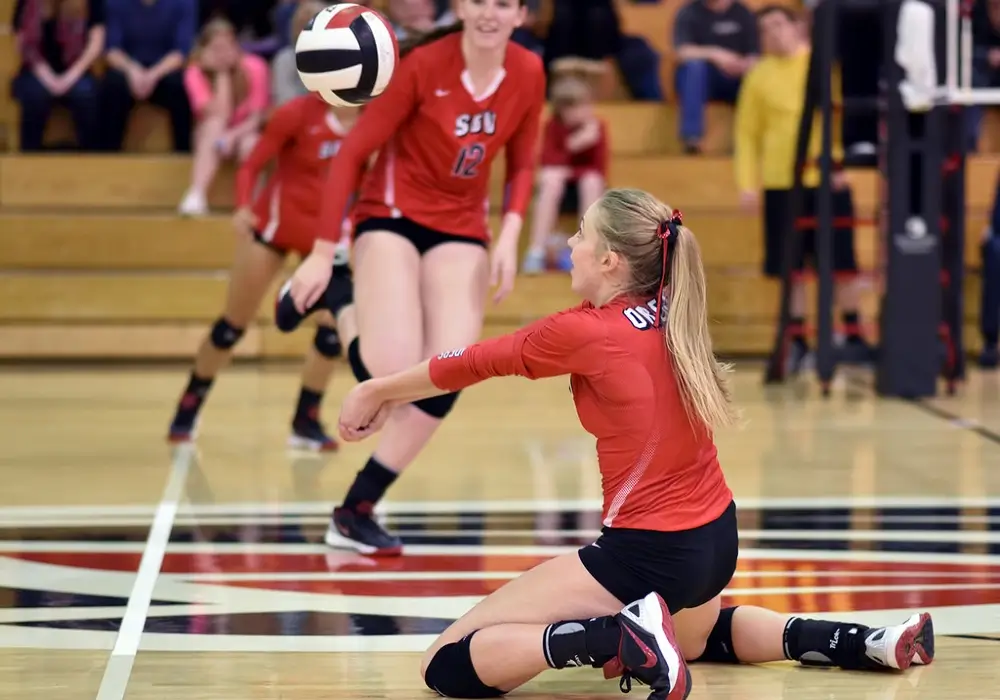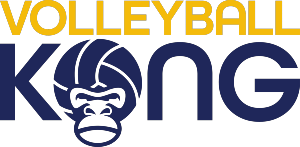Last Updated: October 27, 2023
Understanding the proficiency of individual players in sports like volleyball is never easy. You need to develop a detailed approach to help you assess each player under different circumstances. The same case applies even when you have to assess your team’s digging and diving skills.
As these two techniques are highly important to defend against aggressive attacks, you will need to develop a way to assess your team’s proficiency in digging and diving.
How to Assess Your Volleyball Team’s Digging and Diving Proficiency

It takes a keen eye to spot the little details that matter especially when dealing with a highly talented team. But there is always a way to understand your players’ defensive capabilities.
1. Keep a Keen Eye During Practice
During practice, a good coach always sees if the players understand whatever the he talks about. It is also a good time to observe how well individual players execute the required skills.
During this period, you’re bound to observe some mistakes being made. A good approach to such situation is to have a notebook on the side that you make notes on – instead of constantly stopping the activity whenever a mistake is made.
When necessary, speak to the concerned athlete individually instead of interrupting the entire team.
The whole point is that observing players during practice sessions is the easiest way to gauge your team’s proficiency.
2. Diving & Digging-Specific Drills
Volleyball drills are an extremely important part of great volleyball defensive play. And in that regard, you want to incorporate drills that focus on both digging and diving.
You particularly want to focus on drills that improve a player’s ability to pass the ball as great ball-passing skills are important during ball digging.
The diving and rolling drill is a great example that should be included in your workout routine to help you manage balls that are spiked close to the ground.
Drills are not only a perfect time to learn the game but are also a time to understand each player’s strengths and weaknesses.
3. Video Analysis
We are in the era of digital technology and thankfully it is easy to record entire games for review later. As a coach, it is always a good idea to record games and even practice sessions. You can watch those videos later being sure to pause and make observations at your own pace.
When reviewing videos, you’ll want to focus on things like:
- Player positioning
- Reaction time
- Quality of decision-making
That way you can develop essential data that can help you decide who best fits what position and so forth.
Recommended read: Impact of Digging and Diving on the Outcome of Volleyball Matches
4. Tracking the Stats
It is important to keep stats during your volleyball training and games. As such, you might want to hire or contract someone who is good at this. Looking at the stats of individual players can help you understand their strengths as well as weaknesses.
As far as digging and diving are concerned, you’ll want to have stats on things like:
- Number of successful digs & dives
- Passing accuracy
- Number of point-scoring digs & dives for your team
It may seem like a lot of work but this method of collecting quantitative data can be invaluable for analyzing your players’ defensive proficiency and contribution to winning strategies.
5. Assessing Mental Acumen
In the competitive world of elite sports, coaches should always seek to augment players’ physical skills with mental skills. As such, it pays to pay attention to the psychological toughness of your players.
Related: Journey to Becoming a Volleyball Digging and Diving Expert
What are the key pointers to look out for as far as mental toughness is concerned? Well, you’ll want to evaluate things like:
- How different players react under pressure
- How players adapt to different challenges
- How players maintain focus during critical moments of the game
Good volleyball defenders are ones who are able to stay positive and remain focused even while under immense pressure.
6. Feedback & Communication
Another way to evaluate your player’s quality of play is by taking constant feedback from the team as a whole. So, you want to encourage your team members to be open with you. An environment where continuous feedback and constructive criticism thrive is good.
Encourage players to voice their concerns and share their observations as well. Through such feedback, you’ll be able to spot each player’s strengths and weaknesses.
For example, a player who is constantly being flagged by others for lacking cooperation or bullying others might need to be re-assessed before they ruin the entire team. Some players might be really good on the field but really poor off the pitch – and this might affect your team as well.
Feedback helps you deal with that.
Also read: Step by Step Guide to Perfecting Your Digging and Diving Skills in Volleybal
Conclusion
Assessing a team’s diving and digging proficiency is something that requires time, dedication, and attention. It is even better when the entire process is data-driven. If done correctly, this can significantly improve your coaching skills and above all boost your team’s performance.
